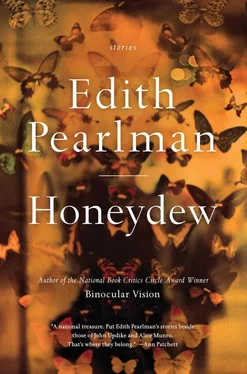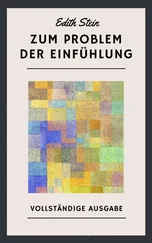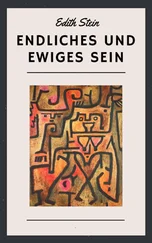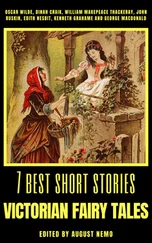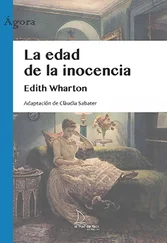“He thought about the colors night and day. He ceased to care about anything else in the world. He sickened for what he could not have. And he died before the seven years was out, knowing at the end that Anansi had spoken truly when he said, ‘Blindness is man’s highest good.’”
After a while Lyle said, “But, Dad, not complete blindness…”
“No. Fables are not literal. Freedom from supervision…supravision…overvision…hypervision…”
“Freedom from second sight,” Lyle added. “I can have that freedom?” He turned toward Marcus. His remarkable eyes, an unremarkable brown, seemed to swell a little — tears had entered from the ducts.
Marcus put his arm around the boy’s shoulders, scraping his elbow grievously on the back of the tree. “I think so.”
The next week, Marcus appeared at dinner with a pair of spectacles — rimless, with wire earpieces. The lenses were constructed of hundreds of miniature polyhedrons.
“Prisms,” said Pansy, and went on dishing out lapin aux pruneaux.
“Involuted prisms,” refined David, who now lived with the family. He had become comfortable at last with his celibacy and inwardness; he was sometimes even talkative.
Marcus turned to Lyle. “These are for you,” he said, and he handed the eyeglasses to the boy. “Put them on whenever you like.”
“They will give you a different kind of vision,” David said. “And, Lyle — it’s all right if you don’t like the spectacles.”
Lyle did not put them on inside. He went out onto the lawn with its commanding beech tree and its flowering bushes. He looked around at the normal thousand-color summer scene — normal to him, at any rate, though he understood it to be his alone. Now maybe he’d know a competing normal. He put on the glasses.
It was as if someone had turned out the lights or a thick cloud had passed in front of the sun. Most creatures see things less brilliantly in the dark, he knew that. He was seeing things less brilliantly. The house, made of flat stones, was gray. Perhaps the gray contained some gold. On the laboratory’s green siding, each slat cast a slightly darker green on the one beneath it. The beech tree was a combination of brown and red. The geraniums were a shade of magenta — one shade of magenta. He looked at his skin. Plain tan. He looked at the sky. Blue, slowly deepening — it was dusk now. Dark blue.
He went inside. “I like the glasses.”
“And the colors?” Marcus asked.
“Duller. Many fewer. Motionless. Perspective is less noticeable. Things seem to have only a touch of a third dimension. I’m glad for the…diminishment. Now I have two ways to see. Thank you, Dad. Thank you, David. You’ve given me a wonderful present.”
“We have given you a choice,” Marcus said. “Always an ambiguous gift.”
Lyle said suddenly, “Spiders — what’s their vision like?”
David said, “Spiders usually have eight eyes placed in two rows on the front of the carapace. The eyes have a silvery appearance. The retinas have relatively coarse-grained mosaics of receptor cells, and their resolution of images is…”
“Poor,” said Marcus, finishing David’s lecture and answering Lyle’s question at the same time.
Lyle wore his gift every day, all day, until he went to bed — and even then he took the new glasses off only after he’d turned out the light. His classmates were incurious about the glasses — they were teenagers, after all, not interested in much outside themselves. But Lyle’s new and commonplace vision gave him new and commonplace manners. He no longer stared into space, his conversation became less effortful. Girls phoned him. He got included in more activities. Marcus and David made sunglasses for him, and swimming goggles, biking goggles, wraparounds for chemistry lab. They made him a pair of pince-nez, which he wore to a Halloween party, along with a stiff collar and a frock coat and a false beard. “Chekhov,” he explained. He joined the chess club. The club met Sunday mornings. His Sunday mornings were free. Ms. Lapidus had recently died.
In the lab Marcus and David were now constructing wide-angle micro-optical lenses. The lenses could be implanted — and were, after the proper trials — in a sufferer’s eye. They made new tools for photography and tomography. They made corneal inlays. Pansy was running the business aspect of the enterprise, and managing the staff of five. Having learned so much about the tricks of the eye-brain double play, she became expert at standard optical illusions, and then invented some of her own, with which she beguiled the twin sons who had been born to her and Marcus. (“Their complexion is Unglazed Bisque,” Lyle said of his brothers, remembering the old paint wheel.) Pansy began a side venture selling games of her own design. Some elaborate inventions she used at the twins’ birthday parties, held in a newly built room off the lab. The kids’ friends entered an illusory universe for half an hour, then gobbled up Pansy’s sweet-potato ice cream, which was real.
VI.
At eighteen Lyle was accepted at St. John’s. He was looking forward to reading the Greats. The day before he was to leave for Annapolis, a thick autumn mist enveloped Godolphin and Godolphin alone — the sun was out in Boston. A graduation gift from Anansi, Lyle thought. He walked down to the river. There the mist rested, soft and colorless. Slowly, deliberately, he took off his glasses.
Mist. Still mist. Then, gradually, colors returned, filled the scattered bits of moisture. According to the laws of physics, each drop should have contained a rainbow — but no, on this eve of departure, the drops, directed by the spider, were breaking the laws, each producing a singular shade for his pleasure, all together producing a universe of colors. Purple deeper than iris, laced with yolky lines. Bronze striped with brass. He saw the indigo of infected flesh, he saw the glistening fuchsia of attacking bacteria, he saw the orange of old-age crinkles that wait invisibly on every smooth young arm. Yes, all colors, in all their headachy variations, colors as they had once been.
His man-made glasses, his trickster specs, had made life less sorrowful, but at a cost. They had deprived him of this sheen of blue blue blue violet seeping into blue blue violet violet pressing itself into blue violet violet violet that yearns to become shadow. Vanilla hectored its neighbor papyrus. There was moss concealing like a mother its multigreened offspring. There were squirming nacreous snakes, slightly nauseating. Much is properly hidden from the eyes of men, Anansi had said…Chartreuse slashed like lightning across his vision from upper left to lower right and also from upper right to lower left, both slants remaining on his retinas that were so cursed, so blessed. Where one diagonal intersected the other in this chartreuse chiasma rested an oval, deep within the intersection, for of course the mist in which these shapes and colors shudderingly resided was three-dimensional or maybe three-and-a-half, and it was in motion too, the color drops assaulting one another in a chromatic orgy. The oval within the chartreuse X was scaled with overlapping hexagons of nearly transparent turquoise — there must have been hundreds of turquoises, each different from the other by so little, so little, yet, by that little, different. What’s your favorite color? people used to ask, as they always ask children. Red, he would answer, divining even then that they had no idea how many reds there were: a cloud at sunset, a cloud at sunrise, blood from a scratch, blood from a nose, a run-over cat; the dappled skin of a tomato, with all reds swimming upon it…He wondered, not for the first time, who his original father was.
Читать дальше
